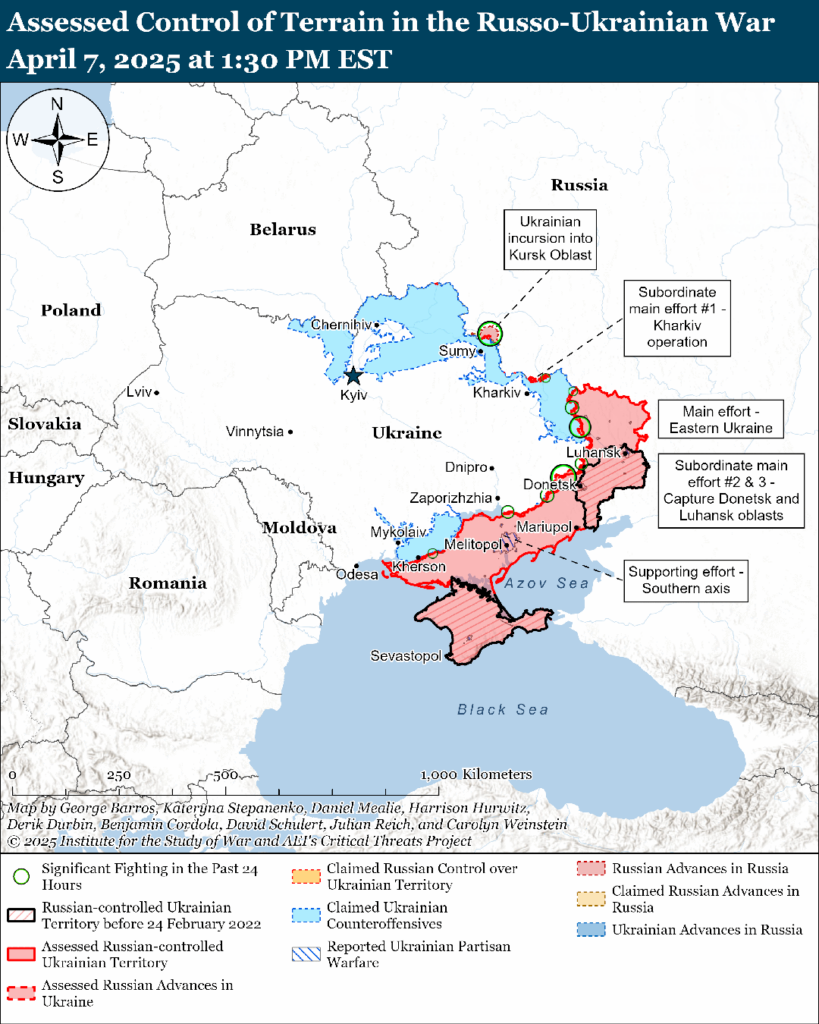“We continue to carry out active operations in the border areas on enemy territory, and that is just – war must return to where it came from.” – Ukrainian President Volodymyr Zelensky has publicly acknowledged for the first time that Ukrainian troops are active in Russia’s Belgorod region. During his Monday address, His comments also referenced Ukraine’s continued presence in Russia’s Kursk region, where Ukrainian forces still hold territory following a major offensive last year.
Strategic Objectives
Zelensky explained that the primary purpose of these cross-border operations is to protect Ukraine’s Sumy and Kharkiv border regions from Russian attacks. He emphasized that these actions help to “ease the pressure” on other parts of the vast front line, particularly in the eastern Donetsk region, where Russian forces have been making slow but steady advances in recent months.

“Our main objective remains the same: to protect our land and our communities in the Sumy and Kharkiv regions from Russian occupiers,” Zelensky said in his nightly address. He specifically thanked the 225th Assault Regiment deployed in the Belgorod region, adding, “Well done, guys! I’m proud of each and every one who is fighting for Ukraine!”
Limited Scope of Operations
The Ukrainian incursion into Belgorod appears to be much smaller in scale compared to the Kursk operation launched in August 2024. In Kursk, Ukrainian forces at one point seized numerous villages and the regional town of Sudzha, though Moscow has since recaptured most of this territory.
Military analysts note that Ukrainian troops crossed into the Belgorod region in late March 2024. The Institute for the Study of War confirmed through geolocated footage that Ukrainian forces had advanced to the village of Popovka, near the Russia-Ukraine border. Russian authorities claimed that these movements were an attempt to “create a negative background” during ongoing talks between Russian President Vladimir Putin and US President Donald Trump.
Previous Border Incursions
This is not Ukraine’s first operation in Belgorod. Ukrainian forces have conducted occasional raids into the region since 2023, including operations involving Russian volunteer soldiers fighting on Ukraine’s side. However, previous incursions typically lasted only a few hours and lacked strategic military significance. The current operation more closely resembles the larger Kursk offensive.
Russian Territorial Claims
While Ukrainian forces push into Belgorod, Russia claims to have made its advances. On Sunday, Moscow announced that its troops had seized the village of Basivka in Ukraine’s northeastern Sumy region, opposite Kursk. Russian President Putin has repeatedly suggested establishing a buffer zone along the border. Ukrainian military spokespersons, however, deny that Basivka has fallen to Russian forces.
International Context
These developments come amid rising tensions in the region. Trump has expressed dissatisfaction with the ongoing conflict, accusing Russia of “bombing like crazy right now.” Zelensky’s home city of Kryvyi Rih recently held funerals for 20 people, including nine children, killed in a Russian missile attack last Friday.
The Kremlin has rejected US and European allegations that it is impeding Trump’s push for a ceasefire. Meanwhile, Russia continues to control approximately 20% of Ukraine’s territory following its full-scale invasion launched in 2022.
Potential Bargaining Chip
Some analysts suggest Ukraine may be holding these Russian territories as potential bargaining chips for future peace negotiations. By controlling parts of Russian soil, Ukraine could propose exchanging these areas for Ukrainian regions currently occupied by Moscow in any US-backed peace talks.
Military Effectiveness Debated
Both Ukrainian and Western war analysts have questioned the military effectiveness of Kyiv’s operations on Russian soil. Critics point to reported high combat casualties and difficulties in supplying weapons to forces operating across the border. Nevertheless, Ukrainian military leadership maintains that these incursions have successfully forced Moscow to redeploy troops away from the Donetsk region, temporarily slowing Russian advances there.
Continued Resistance
Despite the ongoing challenges and the slow loss of territory in the Kursk region, Zelensky remains defiant, insisting that “the entire Kursk operation” has successfully reduced pressure on other frontline sectors. As the war enters its third year, Ukraine continues to seek ways to counter Russia’s numerical and resource advantages through strategic operations like the Belgorod incursion.
The scale, duration, and ultimate objectives of Ukraine’s presence in Belgorod remain unclear, but Zelensky’s public acknowledgment marks a significant shift in Ukraine’s official stance regarding operations on Russian territory.
